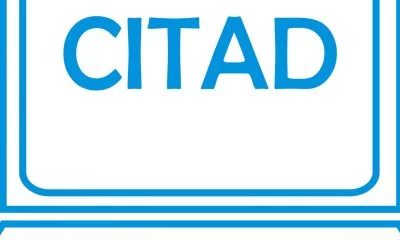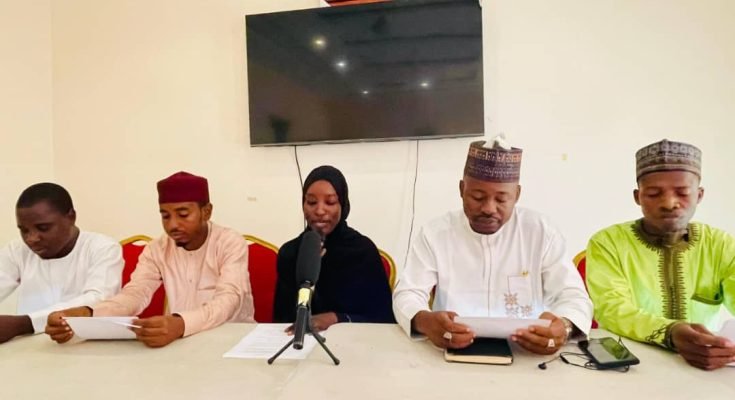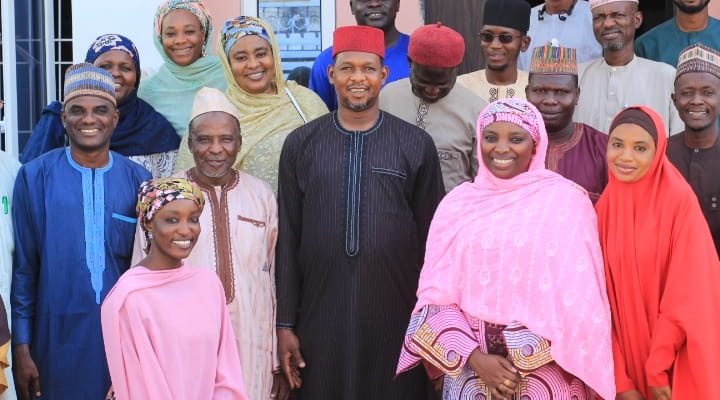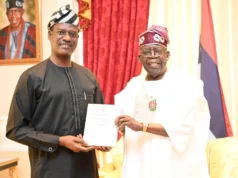In a decisive move for Nigeria’s digital future, the Centre for Information Technology and Development (CITAD) has emerged as a prominent advocate for a formal, robust national artificial intelligence (AI) framework. At a high-level forum held in Kano, technology stakeholders, academics, civil society actors and policy makers gathered under the theme “Towards a National AI Policy”, signalling widespread recognition that Nigeria must not fall behind in the global AI race.
CITAD insists Nigeria’s future competitiveness, equity, and development hinge on getting AI governance right at this early stage. The forum is not merely symbolic — it marks the launch of a sustained platform for ongoing discourse, policy formulation, and engagement across sectors. As one of the leading civil society actors in the digital governance space, CITAD is positioning itself as a bridge between innovators, regulators, and citizens in shaping how AI will take root in Nigeria.
The urgency is clear: while AI offers enormous potential in education, healthcare, agriculture, governance and more, the absence of a clear, inclusive and enforceable national framework could expose Nigeria to risks of exclusion, algorithmic bias, data misuse, and widening inequality. At Kano, participants flagged gaps in infrastructure, regulation, and capacity — and underscored that shape not only of the technology, but of the society it will influence.
In his opening remarks, CITAD’s Executive Director, Malam Yunusa Zakari Ya’u, declared the forum’s mission: to catalyse a multi-stakeholder consensus on AI regulation that is proactive – not reactive. He emphasised that Nigeria must move quickly from being a passive adopter of systems designed externally to becoming a sovereign actor shaping AI’s trajectory in ways aligned with national values and priorities.

Table of Contents
Key challenges and policy considerations
Across session panels and breakout discussions, several recurring challenges dominated the agenda. One major point of emphasis was lack of a unified national AI policy or regulatory instrument — currently, AI governance is scattered across data protection, digital economy, sectoral regulations, and general technology policies, but there is no umbrella legal or regulatory AI framework.
Participants noted that the lack of infrastructure — reliable power, high-speed connectivity, local computing and data hosting capacity — remains a barrier. Many AI systems rely on intensive computing and data storage; if Nigeria cannot localise these capabilities, it risks continual dependence on foreign systems that may not reflect local priorities or guard against misuse.
Ethical concerns figured prominently: issues such as algorithmic bias, data privacy violations, opacity of automated decision systems, and threats to human rights were flagged as serious risks. Without clear rules on accountability, redress, and auditability, AI could deepen existing inequalities or create new ones.
Another concern raised was capacity — across government, academia, and civil society. Many institutions lack personnel with technical and regulatory fluency to evaluate or guide AI systems. Several speakers emphasised that policy without technical grounding or domain understanding is unlikely to succeed.
In the education sector, some raised alarm over AI-enabled malpractice, plagiarism, or misuse by students — arguing that universities need clear AI-usage guidelines to maintain academic integrity. Others warned against treating AI adoption as a purely technical issue; its deployment touches labour, governance, rights, and social equity.
One positive announcement came from the Kano State Commissioner for Information, Science, Technology and Innovation, Dr. Yusuf Ibrahim Kofar Mata: the state government plans to develop a Hausa-language AI chatbot for local users (farmers, students, traders). This is intended as a model of an inclusive AI application, making technology accessible in local languages and tailored to grassroots needs.
The Commissioner also pledged that Kano State would assign a permanent liaison to the forum and form a state-level committee to align the evolving AI policy discourse with state planning and development agendas.
By the end of the forum, there was a palpable consensus: Nigeria must transition from being a consumer of externally developed AI systems to becoming a proactive innovator and regulator.

CITAD’s role and the forum’s roadmap
CITAD’s ambition goes beyond a single event. The forum is designed as a recurring space — monthly sessions are planned — to maintain momentum, track developments, and continuously refine policy proposals. Through sustained engagement, the organisation intends to keep digital policy in ongoing conversation with citizens, academia, industry, and government.
In effect, CITAD seeks to act as a convener, watchdog, and translator: convening diverse voices, tracking accountability, and translating technical insights into policy proposals and public understanding. By doing so, CITAD hopes to counter the common tendency of tech policy being developed in silos or by a few insiders.
Discussions at the forum also emphasised synergy with existing national strategies. Nigeria already has a National AI Strategy (NAIS) document, which lays out ambitions to position the country as a global AI leader and outlines pillars like infrastructure, ecosystem development, ethics, and sectoral deployment. The CITAD-led process is thus not duplicative but intended as an inclusive, consultative layer that helps ground the strategy in accountability, citizen voice, and public legitimacy.
CITAD likewise called for alignment between national and subnational levels. While federal policy is necessary, states must also have the flexibility to adopt AI in locally meaningful ways. The Kano State AI chatbot initiative is one example of this dual approach: national governance paired with local innovation.
Moreover, CITAD urged the integration of gender, equity, and climate justice perspectives into the AI framework. In a preceding intervention, the organisation had argued that any AI strategy that fails to include women, marginalised groups, and climate-vulnerable populations is likely to reproduce marginalisation.
Finally, the forum participants resolved to prepare a draft national AI bill (or policy document) within a defined timeframe, circulate it for public consultation, and submit it to the relevant legislative bodies. This effort would require political backing, legal sponsorship, and collaboration across ministries, regulators, and sector bodies.
What lies ahead for Nigeria’s AI future
The path ahead is studded with both enormous opportunity and serious complexity. Nigeria already signals ambition: federal agencies have launched efforts to build sovereign AI systems, invest in foundational infrastructure, and attract talent. But ambition alone is not enough — the critical test will lie in bridging the gap between vision and implementation.
First, political will and leadership matter. Multiple commentators have noted that for AI policy to stick, it must be elevated beyond ministerial portfolios to a national priority, with institutional backing that survives electoral transitions. Without strong institutional anchoring, successive governments may undo or weaken progress.
Second, legislation will need to address core questions: who regulates — will there be a dedicated AI regulator or oversight body? How shall liability be assigned when automated decisions cause harm? What mechanisms must exist for auditability, contestability, and redress? How to harmonise with sector regulators (health, finance, telecom) and data protection laws?
Third, infrastructure and localisation are strategic levers. Nigeria must invest in local data centres, high-performance computing, network connectivity, and secure cloud platforms. Domestic firms like data centre operators, cloud providers, and local AI startups must be supported to reduce dependence on foreign infrastructure.
Fourth, capacity building and knowledge diffusion must be central. Government ministries, universities, the judiciary, and civil society must gain fluency in AI’s possibilities, risks, and oversight tools. This includes interdisciplinary training — not only computer science, but law, ethics, public policy, and social sciences — so AI governance is properly informed by context.
Fifth, piloting and demonstration matters. Rather than implementing grand nationwide programs, Nigeria should start with pilot projects in priority sectors (health, agriculture, education, and governance), evaluate the outcomes, expose the lessons learned, and scale up gradually. Pilots such as the Kano AI chatbot or others can show proof points of inclusive, accountable AI adoption.

Finally, citizen participation and transparency must anchor legitimacy. Public consultations, open drafts, participatory design, complaint mechanisms, and broader civic tech engagement can deepen public trust and ensure that AI policy is not imposed top-down but emerges in dialogue with users. CITAD’s forum is one vehicle for such engagement.
The stakes are high: a poorly regulated AI ecosystem could deepen inequality, entrench surveillance, or exacerbate digital exclusion. But with care, Nigeria could instead harness AI as a tool for inclusive growth, service delivery, and innovation tailored to its diverse society.
The CITAD-led forum is timely — by bringing together voices from across sectors, it helps democratise the policy conversation. If sustained, strategic, and aligned with institutional processes, it could become a cornerstone in Nigeria’s journey toward responsible, equitable AI.
Join Our Social Media Channels:
WhatsApp: NaijaEyes
Facebook: NaijaEyes
Twitter: NaijaEyes
Instagram: NaijaEyes
TikTok: NaijaEyes





